Following The Film Stage’s collective top 50 films of 2023, as part of our year-end coverage, our contributors are sharing their personal top 10 lists.
When A.O Scott announced his departure as the New York Times film critic back in March, he cited the “feeling of disconnection between the critic and the audience” as his reason for leaving the coveted post. It’s hard to blame him; when he revealed his best-of-the-year list at the tail end of 2022, his social media mentions quickly turned hostile, accused of elitism due to not featuring Top Gun: Maverick in his picks (that his number 1 was a commercial hit in the form of Jordan Peele’s Nope was an irony not entirely lost in the mix). Audiences used to look towards critics for guidance, to find the hidden gems among the dozens of new releases released every week. Now, it seemed, the majority just wanted confirmation that they liked the right thing to begin with.
At the end of the best year for cinema so far this decade, this pack mentality among some remains persistent. Look at the reactions to Vulture critic Bilge Ebiri’s quick tweet of his favorites of the year, when one prominent animator even got involved in the pile-on about the movies he overlooked, as a barometer; if a list doesn’t have your favorite on it, the new mantra goes, then it’s automatically invalid. All this is to say that, no, my favorites of the year might not include what the consensus has deemed the very best of 2023––but when the past 12 months have offered such an embarrassment of riches, when films that didn’t even crack my top 25 are as worthy of discovery as those in this top tier, I can’t help but be bemused by the notion that any list should resemble or reaffirm those biases. My hope, as always, is that if you haven’t made the time for any of these films yet, that this will encourage you to make the leap. It’ll be more fulfilling than arguing with me about what I have omitted, I promise.
Honorable Mentions: The Killer, The Five Devils, John Wick: Chapter 4, Are You There God? It’s Me, Margaret, Priscilla
10. Passages (Ira Sachs)
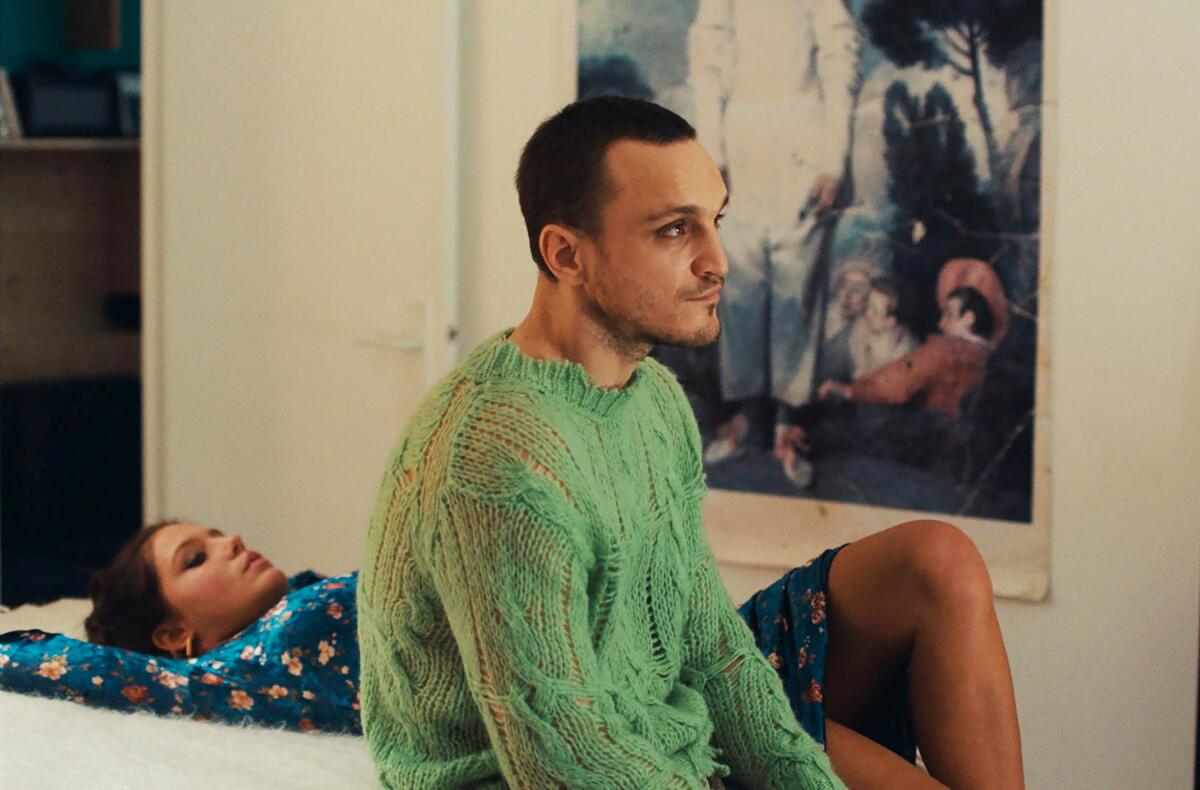
The New York Film Critics Circle’s recent decision to award Franz Rogowski with their Best Actor trophy prompted some unexpected controversy, with some immediate Twitter discourse criticizing their honoring of a “bad” queer character. This is perhaps why, in an era where studios demand exclusively positive representation of LGBTQ characters – who inevitably remain firmly on the margins of wider narratives––Ira Sachs’ unsparing depiction of Tomas in all his unapologetic messiness feels genuinely transgressive. His casual destruction of every relationship in his life through a series of unforced errors makes him one of the most easily detestable leads of the year. Rogowski excels at making a character you want to flee from almost immediately feel magnetic; when he fucks around, you want to stay until he finds out.
9. May December (Todd Haynes)
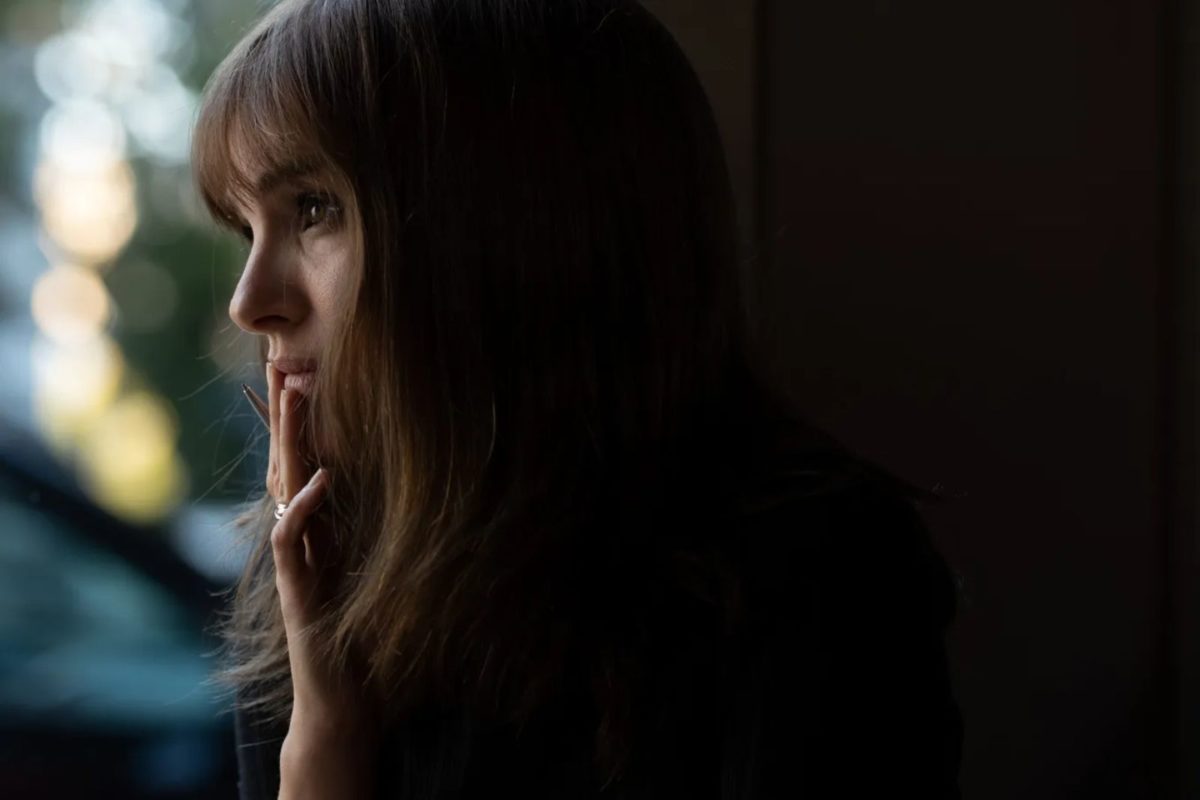
Todd Haynes is one of the most chameleonic directors working today, which is why it’s such a pleasant surprise to see his very deliberate approximation of a Lifetime movie––the kind of scandalous endeavor that Elizabeth (Natalie Portman) believes is her ticket to serious acclaim––has largely been received without irony. Admittedly, you don’t have to cut too deep beneath the bone to see this is Haynes’ scorched-Earth takedown of the hypocrisy of suburban America, where the need to keep up appearances enables a victim’s suffering to continue for decades in broad daylight. In a year when Sound of Freedom became a box office hit due to its seeming affirmation of fringe conspiracy theories about child abuse trafficking, May December is the informed reminder that the real horrors are far closer to home.
8. Knock at the Cabin (M. Night Shyamalan)
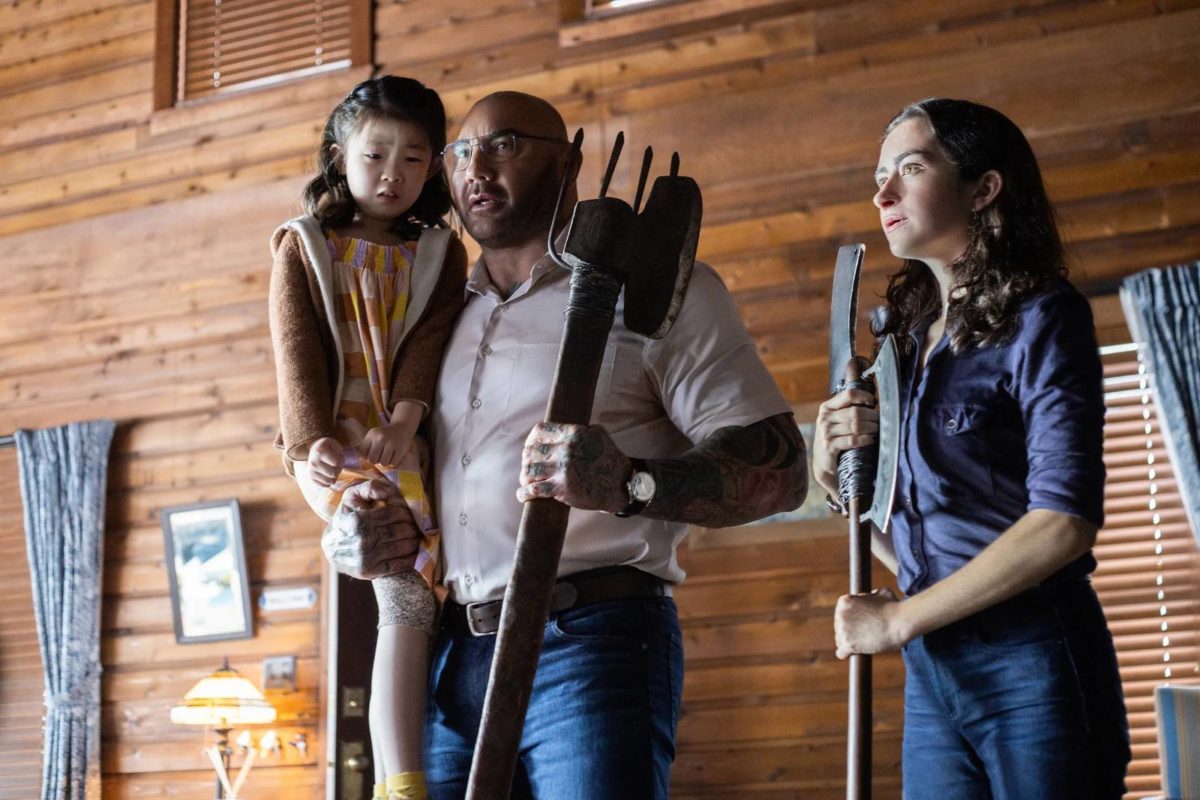
Would it be inaccurate to describe M. Night Shyamalan’s latest as a faith-based thriller? The bad-faith readings of the film––which at their worst, accused the filmmaker of affirming a conspiratorial, Qanon-adjacent mindset that justified the torture of a gay couple and their young daughter––seemed to suggest so, but I don’t think that genre moniker should be considered a pejorative. Deviating from the nihilistic despair of the source material, Shyamalan poses far more thoughtful questions about the relationship queer people have with religious belief, using the framework of an apocalyptic thriller to explore whether it’s possible to take a blind leap of faith for a world that denied you the same rights as others.
The casting of Jonathan Groff and Ben Aldridge as the central couple, the two most conventionally attractive white men you could possibly find, only heightens the film’s grave thesis, centering two people who would have no issue fitting in if it weren’t for their sexuality. The flashbacks to their lives before entering the cabin are uniformly poignant for the ways they depict ostracizations both subtle and aggressive, but even in the face of unavoidable despair, the writer/director’s worldview is ultimately hopeful. Perhaps the most challenging thing for some viewers is the idea that a society so hateful and unwelcoming could be worth saving at all; as a queer viewer, this is exactly why the film has lingered on my mind all year.
7. Anatomy of a Fall (Justine Triet)
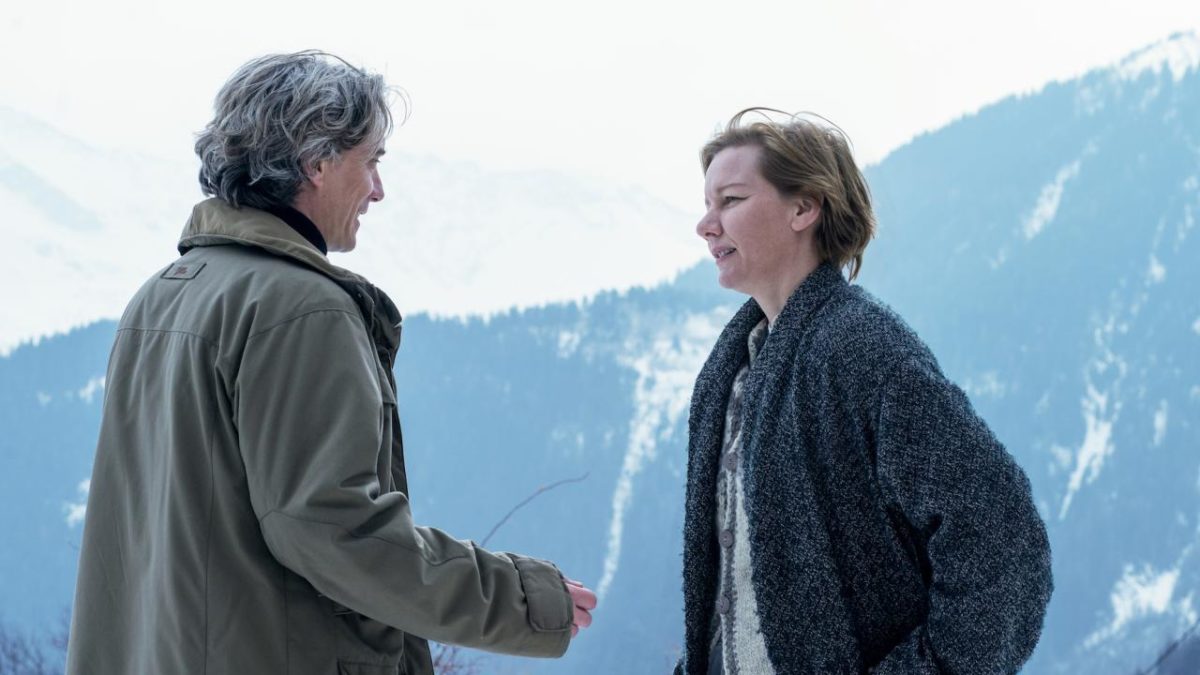
The legal thriller was back in style in 2023, but Justine Triet’s third feature was the only one that didn’t feel like it was remotely coasting on audience goodwill for a genre that has long laid dormant in the mainstream. Picking up from where Alice Diop’s Saint Omer left off in its interrogation of courtroom subjectivity, Anatomy of a Fall refuses to offer any definitive answer as to its protagonist’s guilt; it’s the rare film in the genre told so masterfully, the result from proceedings poses more questions than it answers.
This is partially thanks to Sandra Hüller’s unknowable performance as Sandra, at times appearing so guilty she might as well be wearing a hot dog costume (see: her bursting into tears when offering a guest a glass of water), at others understandably frustrated that her personal life, sexuality and body of work are considered fair game for armchair analysis. The more we come to know her, the more we come to understand that there’s substantial evidence on both sides of the argument––no verdict can offer catharsis, which is all part of the morally knotty fun.
6. Trenque Lauquen (Laura Citarella)
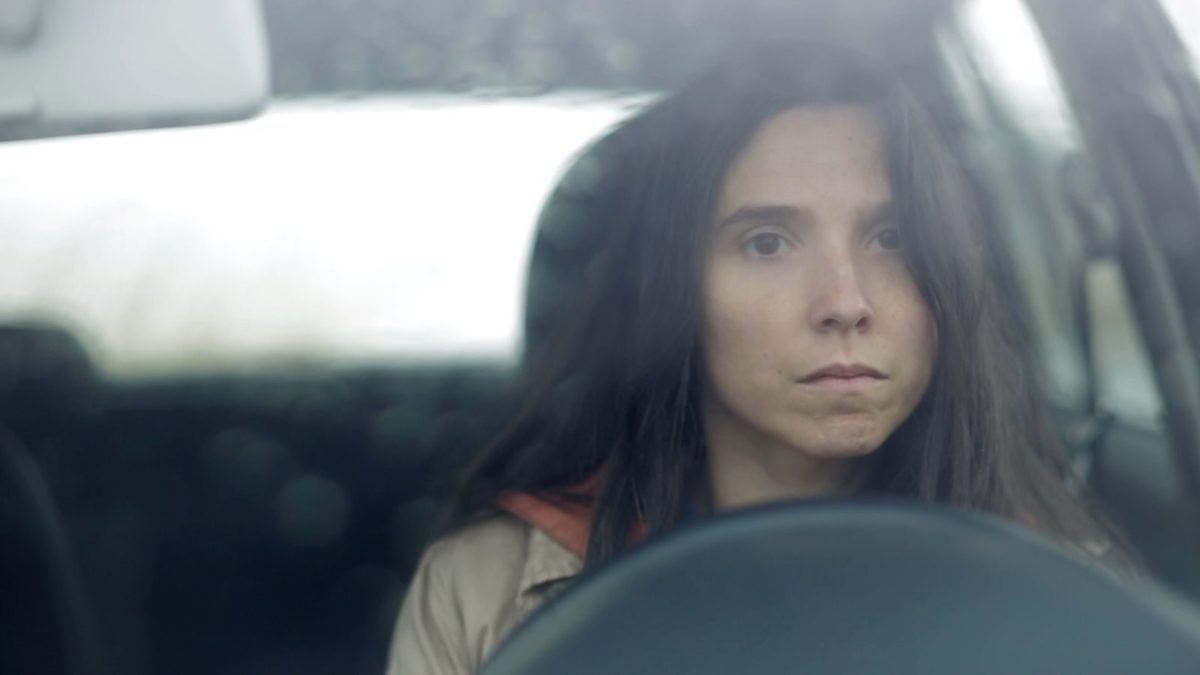
Films that posit their mysteries as puzzles for the viewer to solve are far less enveloping than the ones that allow you to lose yourself in the unknowable. This is part of the reason why Trenque Lauquen is one of the year’s most rewarding films, even as it multiplies the number of secrets its characters explore before even attempting to offer an answer to the previous one. It should prove frustrating, especially when told across a four-hour-plus run time, but director Laura Citarella’s restless refusal for her story to be pigeonholed within a specific genre helps her sustain momentum even as it becomes apparent her novelistic digressions are the driving force, not the initial mystery.
On a shoe-string budget, she’s made a truly unclassifiable film; a straightforward neo-noir which encompasses everything from romantic drama to creature feature as it progresses. It moves like an airport page-turner even as it becomes immediately clear the final chapter won’t offer a clean, conventional resolution.
5. La Chimera (Alice Rohrwacher)
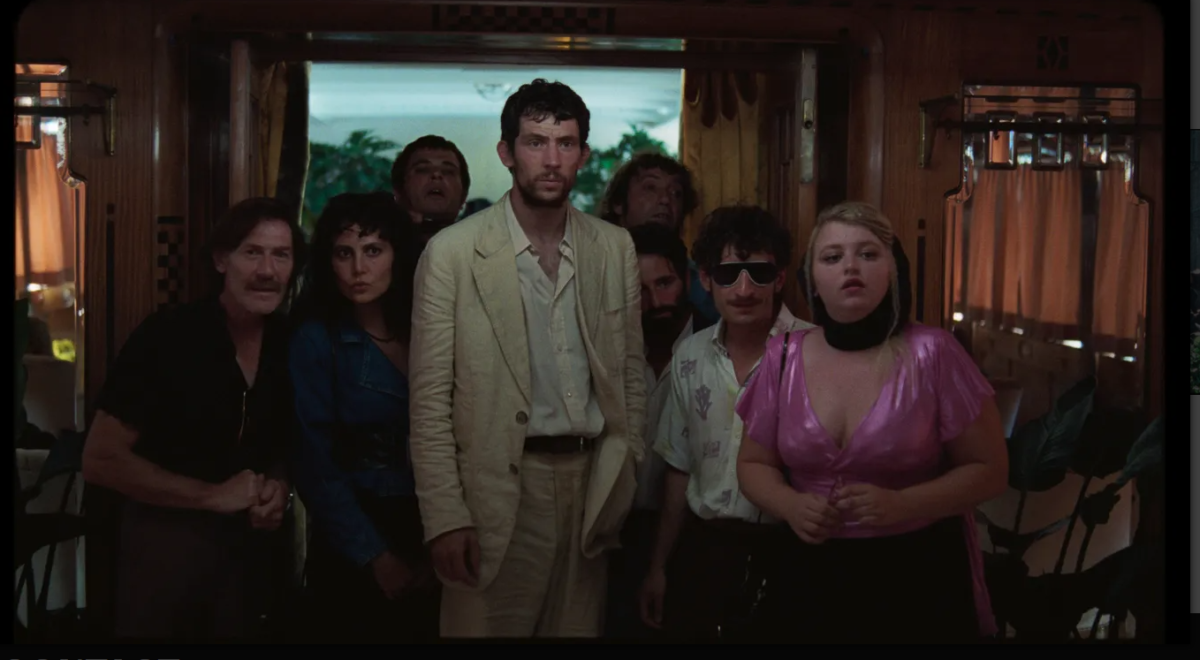
If Citarella’s film used its central mystery to experiment with a novelistic narrative structure, then Alice Rohrwacher’s La Chimera uses its metaphysical premise as a jumping-off point to confound the very form of cinematic storytelling itself. As the British expat Arthur (Josh O’Connor) becomes more deeply entwined with a group of grave robbers in his hunt for a connection to the afterlife that will reunite him with a lost love, the filmmaker restlessly breaks dramatic and stylistic conventions; fourth walls are broken, frame rates are increased and decreased at will, and the conception of reality within the drama is increasingly obscured. Rohrwacher’s sheer playfulness ensures it never becomes overwhelming, at times even playing out an audacious tribute to silent cinema – in his increasingly dirty and creased suit, O’Connor becomes a bumbling protagonist as easily identifiable as Charlie Chaplin’s Tramp.
A short capsule write-up after a single viewing can’t do justice to the density of formal and narrative invention at play here, which should be the biggest selling point: we need more filmmakers this bold in their adventurousness.
4. Do Not Expect Too Much Of The End Of The World (Radu Jude)

If 2022 was defined by the toothless “eat the rich” satire, 2023 countered with substantive takedowns of gig economy culture. David Fincher’s sardonic Killer commanded the most attention in this regard, showing that even hitmen are at the mercy of late capitalism’s whims, but it was Radu Jude’s latest skewering of post-pandemic life that took no prisoners. His nearly three-hour odyssey across Bucharest contrasted the daily routine of production assistant Angela (Ilinca Manolache) with the taxi-driving heroine of a 1981 Romanian film, showing how even sanitized working conditions in the movies have been drastically transformed by corporations that overwork and underpay.
It’s one of 2023’s most hopeless films, but Jude doesn’t give into any nihilistic impulses in the manner Fincher does, more transparent in its invitation to the audience to laugh in the face of despair. The drama is punctuated by Angela’s TikTok alter-ego, a men’s rights activist who espouses the gospel of Andrew Tate, which only heightens the film’s thesis; when times are this dark, all you can do when you’re powerless is make dumb jokes to punch up at those responsible and hope they’ll feel the hit. Alas, they never do.
3. All Of Us Strangers (Andrew Haigh)
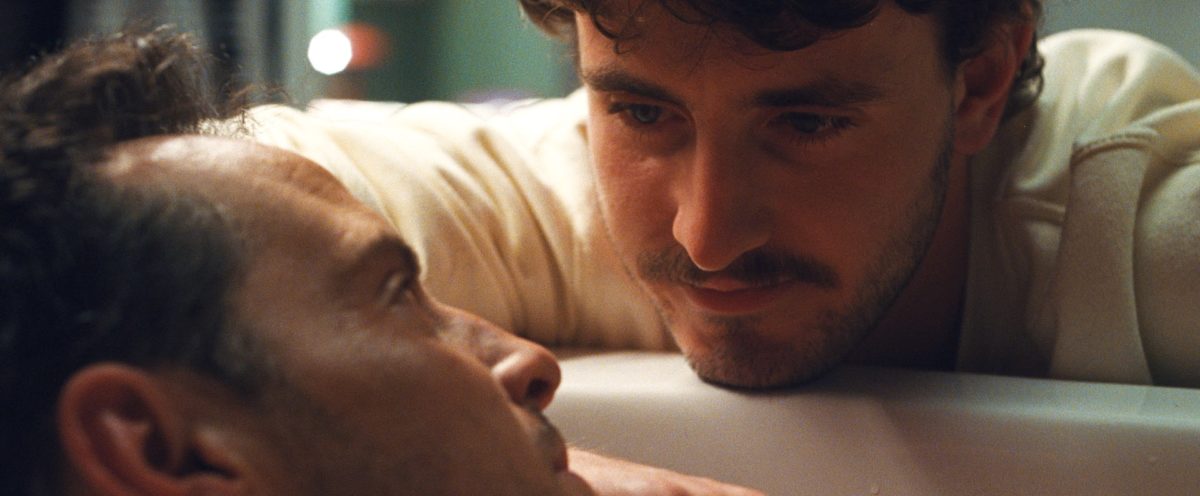
There are many films about the devastating effects of the AIDS crisis, but very few that grapple with the loneliness of those left behind or came of age as it began to make headlines. Through supernatural metaphor, Andrew Haigh’s latest––and best––film tackles the existential displacement of a gay man (Andrew Scott) fast approaching middle age, his isolation only underlined by the near-abandoned tower block in which he lives. His friends have long moved out of the city, he has to maneuver a generational divide with a new, younger romantic partner (Paul Mescal) whose adolescence was far different to his, and he feels a longing to return to his childhood and come out to the parents who died before he became fully aware of his own identity.
The wish fulfilment that brings them back to life is never explained, because Haigh understands that his protagonist’s deeply human naivety in this situation ensures he’d never once question the otherworldly logic. However, to call that impulse “universal” would do a disservice to how the character navigates his relationship with his family and his sexuality; it’s highly likely that, if the film were a more faithful adaptation of the source material, devoid of its queerness, it wouldn’t resonate as strongly. I certainly can’t imagine that version of the movie making it to my best of list.
2. Killers of the Flower Moon (Martin Scorsese)
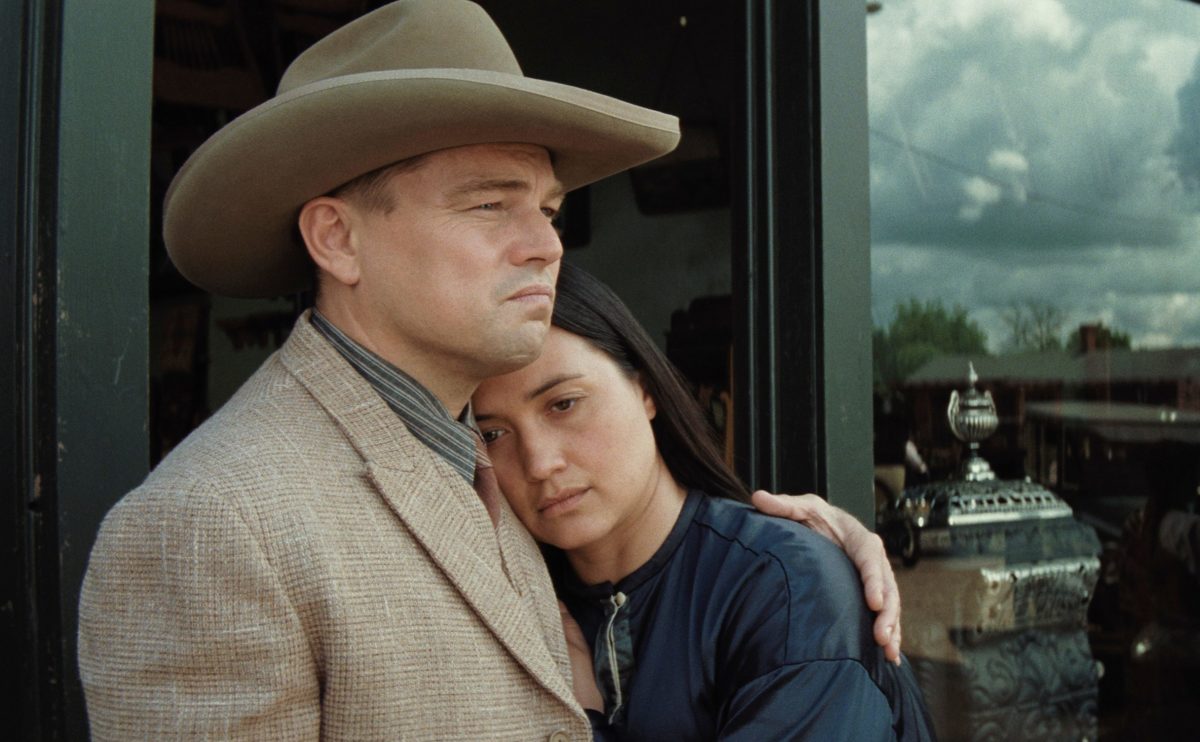
Guillermo del Toro recently stated that: “If God offered to shorten my life to lengthen Scorsese’s, I’d take the deal”––and as we further approach a world in which Scorsese would no longer be around to make new films, the Mexican filmmaker’s proposition is one presumably shared by cinephiles the world over. There’s very little new to say about Killers of the Flower Moon, the year’s most extensively analyzed effort, but much like The Irishman, its final moments indicate that this could function as an effective swansong–gracefully reflecting on a career as a storyteller, and his function within the true-crime industrial complex–if the worst were to happen. However, I’m sure I’m not alone in hoping that Scorsese’s career will feature more “definitive endings” than the extended cut of Return of the King in the years to come.
1. Afire (Christian Petzold)
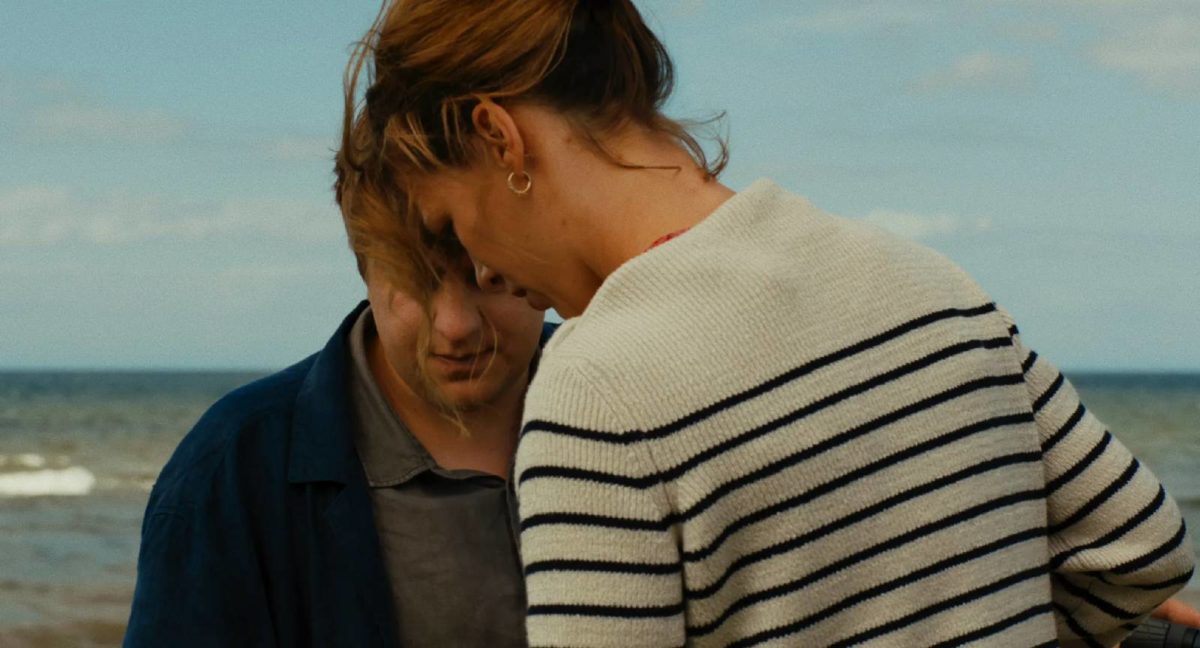
With his most recent films using the framework of genre cinema to explore Germany’s dark history and its echoes into the present, Afire initially announces itself as a slight effort in Christian Petzold’s filmography. But what begins as a joyously comic riff on Éric Rohmer’s La Collectionneuse subtly transforms into one of the most invigorating examinations of the artistic process in recent memory. And this doesn’t come from Leon’s (Thomas Schubert) fruitless efforts to flesh out a second novel that sounds unreadable––the excerpts from the first chapter of “Club Sandwich” that we hear rank highly in the year’s funniest moments––but rather from the way he slowly comes to accept his own limitations as an artist. Several critics have called Leon one of the most unlikeable protagonists to grace screens in 2023, an assessment I don’t find entirely fair. His ego makes him near impossible to warm to, but I couldn’t help but assume this was largely performative; he’s a writer who has placed himself in self-imposed exile for the sake of his art, taking too long to realize his inabilities to form meaningful human connections are behind his mental roadblock. That coldness makes him frustrating to spend time with, not to mention why Petzold successfully lands every gag at his expense, but it makes his gradual epiphany more rewarding than it has any right to. Great tragedy doesn’t necessarily create great art––which a misreading of the third act could lead you to believe was Petzold’s argument––but great art certainly can’t be created when an artist cordons themselves off from the world around them. Devoid of much of the allegorical density of his previous works, even if the wildfires surrounding the holiday home aim to modernize the “summer movie” in an age of ecological crisis, most directors should aspire for their slightest works to have the emotional directness of Afire.
